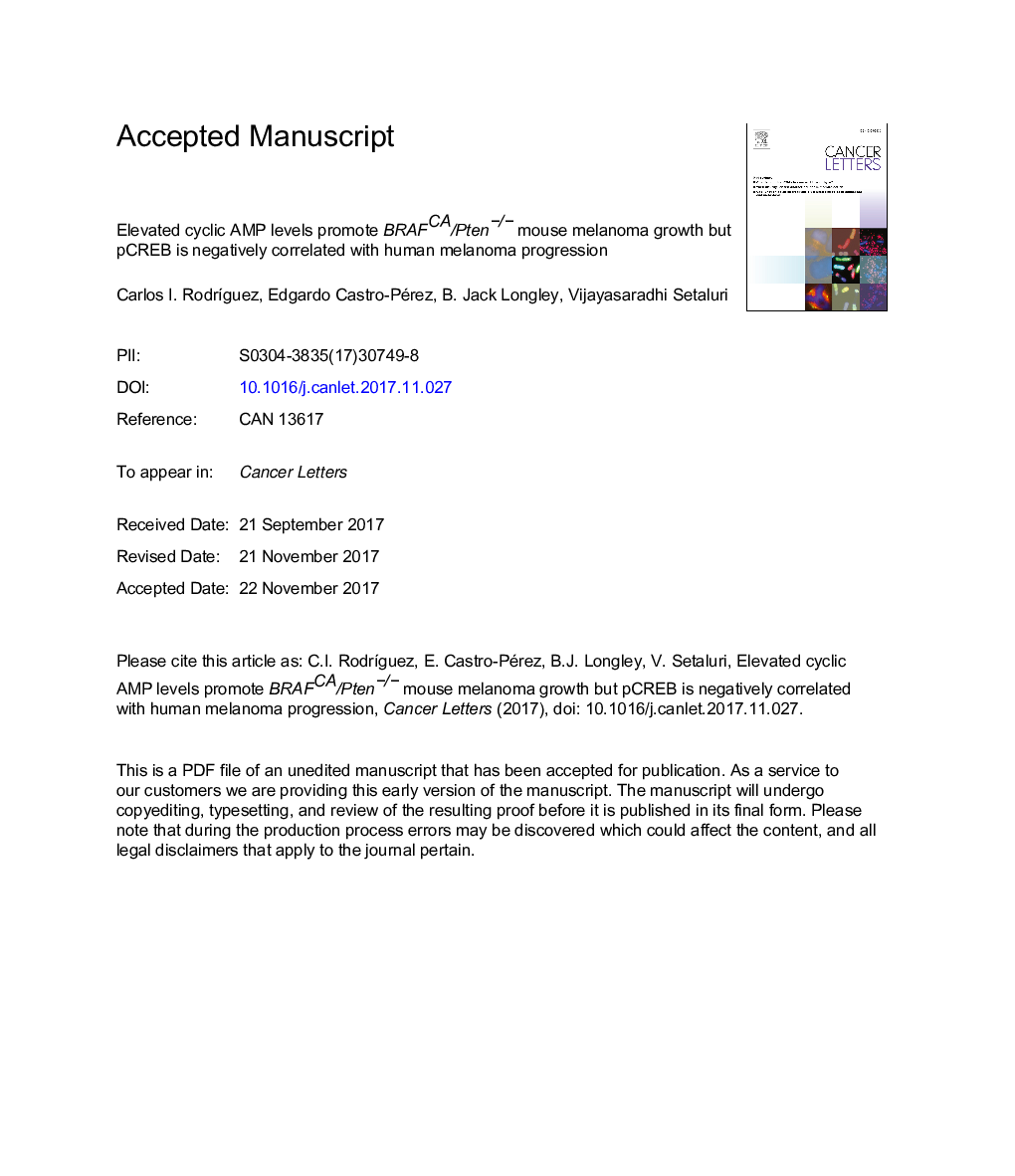| Article ID | Journal | Published Year | Pages | File Type |
|---|---|---|---|---|
| 8435039 | Cancer Letters | 2018 | 37 Pages |
Abstract
Melanocyte development and differentiation are regulated by cAMP, which is produced by the adenylate cyclase (AC) enzyme upon activation of the melanocortin-1-receptor (MC1R). Individuals carrying single amino acid substitution variants of MC1R have impaired cAMP signaling and higher risk of melanoma. However, the contribution of AC to this risk is not clear. Downstream of AC, the phosphorylated transcription factor, cyclic AMP Responsive Element Binding Protein (pCREB), which is activated by protein kinase A, regulates the expression of several genes including the melanocyte master regulator MITF. The roles of AC and CREB in melanoma development and growth are not well understood. Here, we investigated the effect of topical application of AC inhibitor on BrafCA/Ptenâ/â mouse melanoma development. We show that AC inhibitor delays melanoma growth independent of MAPK pathway activity and melanin content. Next, employing a primary melanoma tissue microarray and quantitative immunohistochemistry, we show that pCREB levels are positively correlated with the proliferative status of melanoma, but low pCREB expression is associated with tumor aggressiveness and metastatic recurrence. These data suggest that low cAMP signaling inhibits tumor growth but is a predictor of melanoma aggressiveness.
Related Topics
Life Sciences
Biochemistry, Genetics and Molecular Biology
Cancer Research
Authors
Carlos I. RodrÃguez, Edgardo Castro-Pérez, B. Jack Longley, Vijayasaradhi Setaluri,
